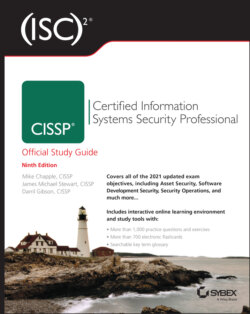Читать книгу (ISC)2 CISSP Certified Information Systems Security Professional Official Study Guide - Mike Chapple - Страница 207
CFAA Amendments
ОглавлениеIn 1994, Congress recognized that the face of computer security had drastically changed since the CFAA was last amended in 1986 and made a number of sweeping changes to the act. Collectively, these changes are referred to as the Computer Abuse Amendments Act of 1994 and included the following provisions:
Outlawed the creation of any type of malicious code that might cause damage to a computer system
Modified the CFAA to cover any computer used in interstate commerce rather than just “federal interest” computer systems
Allowed for the imprisonment of offenders, regardless of whether they actually intended to cause damage
Provided legal authority for the victims of computer crime to pursue civil action to gain injunctive relief and compensation for damages
Since the initial CFAA amendments in 1994, Congress passed additional amendments in 1996, 2001, 2002, and 2008 as part of other cybercrime legislation. We'll discuss those as they come up in this chapter.
Although the CFAA may be used to prosecute a variety of computer crimes, it is also criticized by many in the security and privacy community as an overbroad law. Under some interpretations, the CFAA criminalizes the violation of a website's terms of service. This law was used to prosecute Aaron Swartz for downloading a large number of academic research papers from a database accessible on the MIT network. Swartz committed suicide in 2013 and inspired the drafting of a CFAA amendment that would have excluded the violation of website terms of service from the CFAA. That bill, dubbed Aaron's Law, never reached a vote on the floor of Congress.
Ongoing legislative and judicial actions may affect the broad interpretations of the CFAA in the United States. For example, in the 2020 case Sandvig v. Barr, a federal court ruled that the CFAA did not apply to the violations of the terms of use of a website because that would effectively allow website operators to define the boundaries of criminal activity. As this book went to press, the U.S. Supreme Court was considering a similar case, Van Buren v. United States, with the possibility of creating a definitive precedent in this area.
